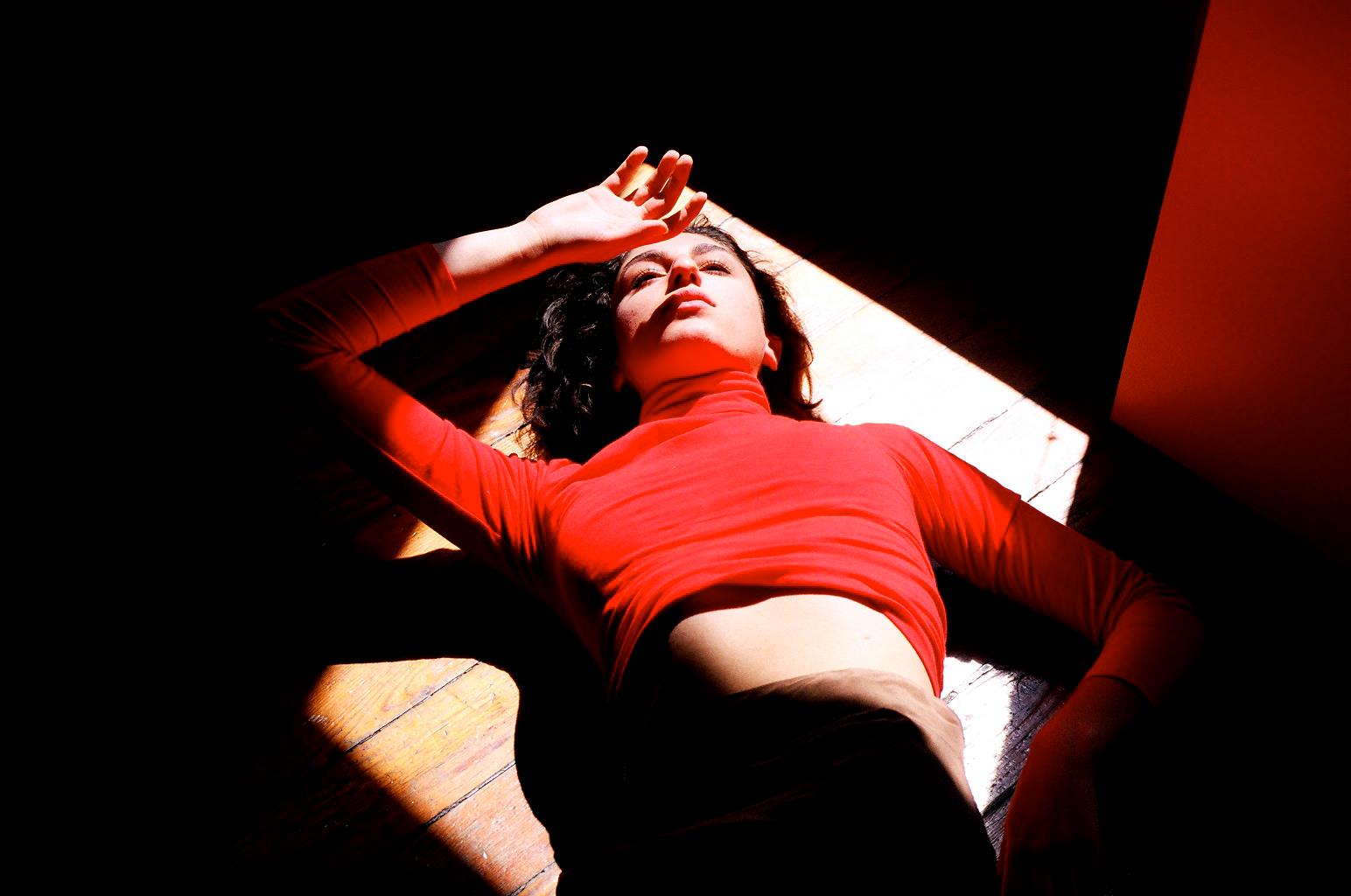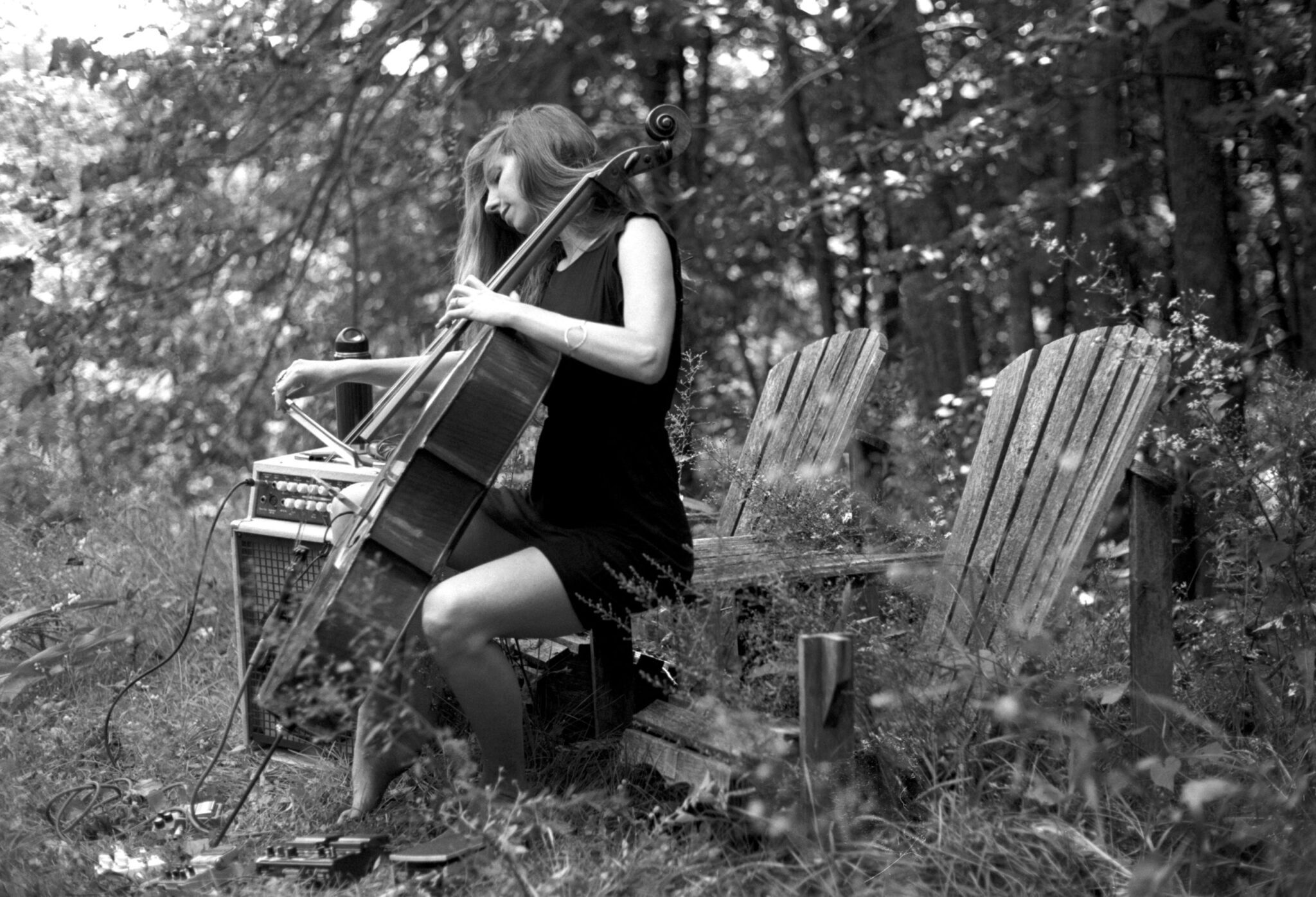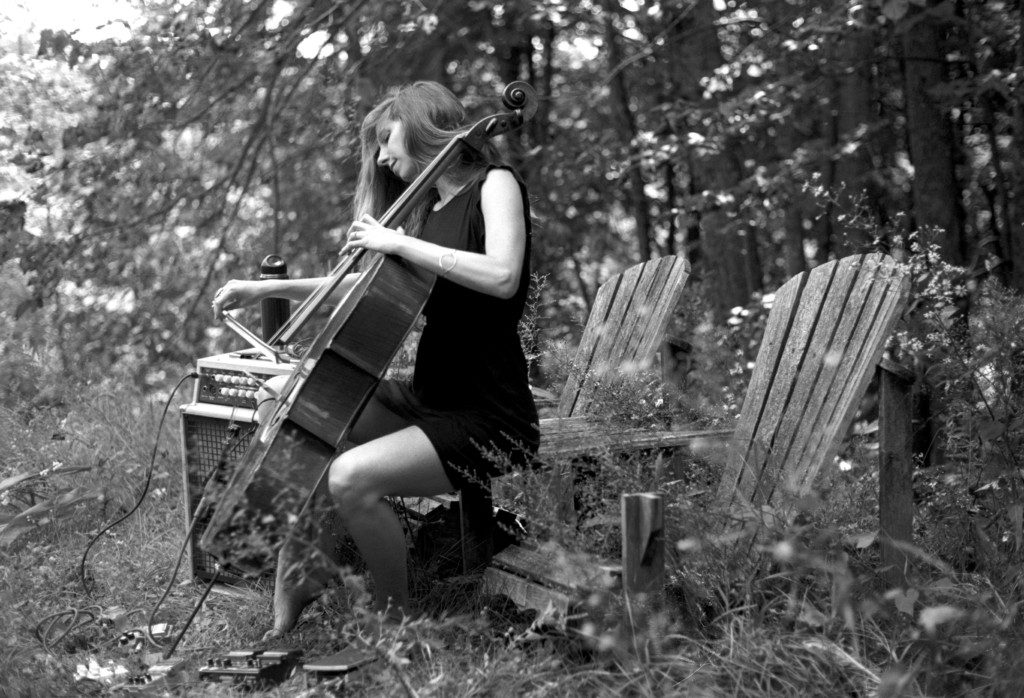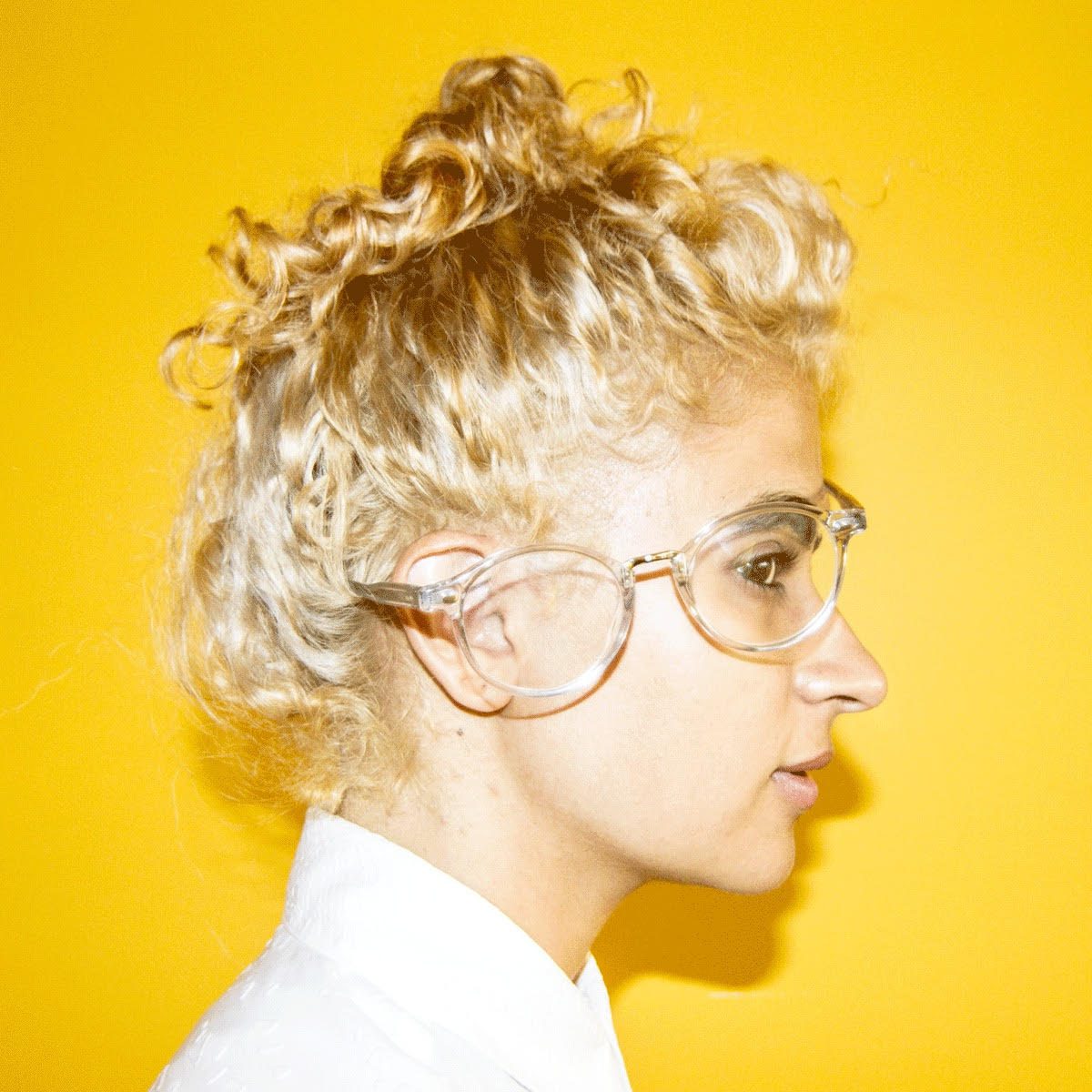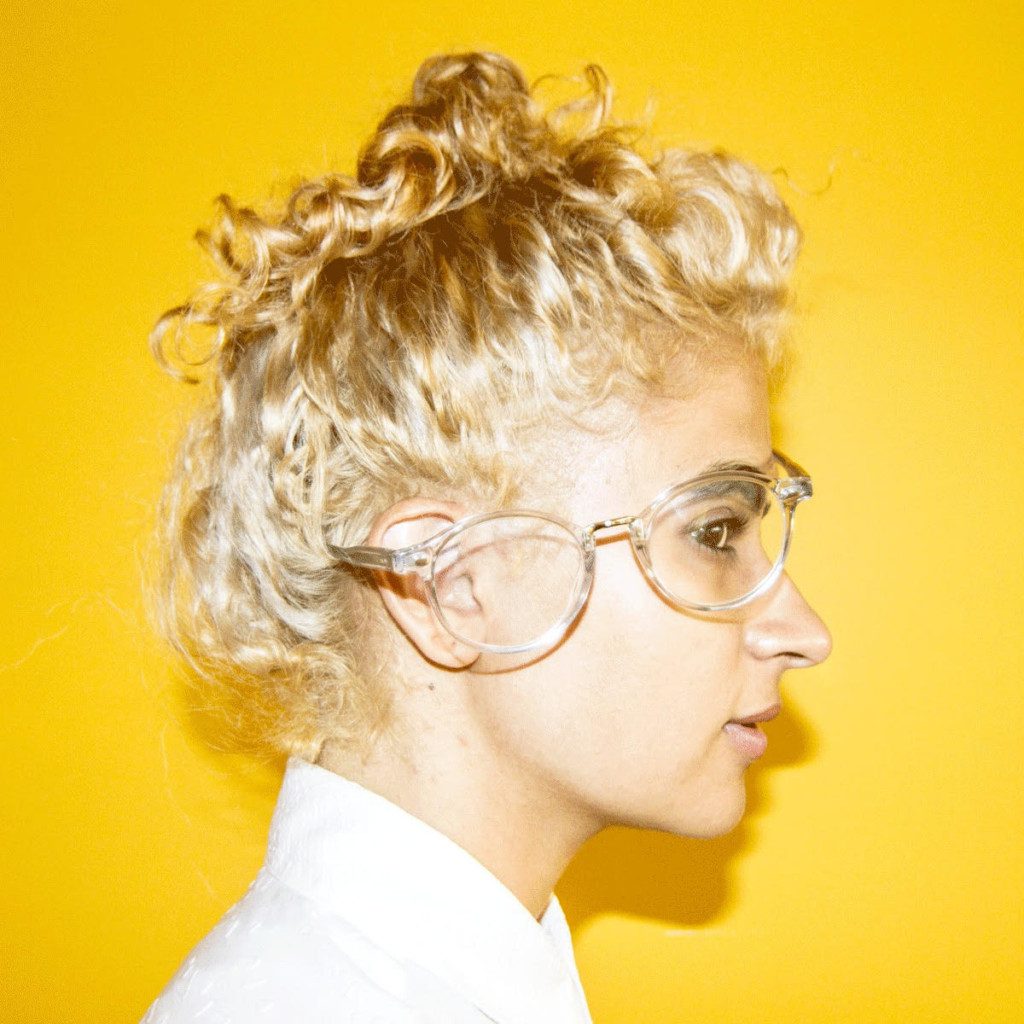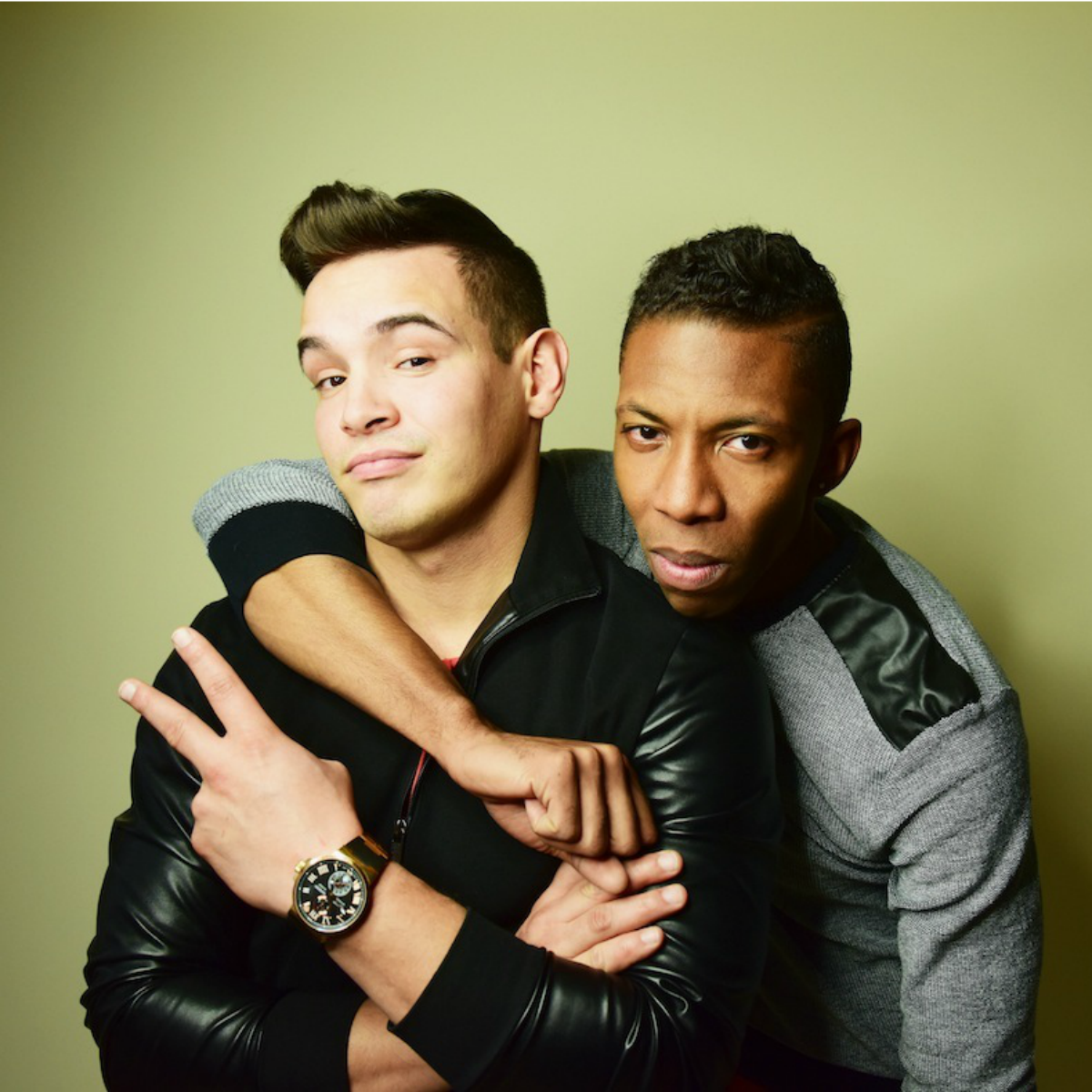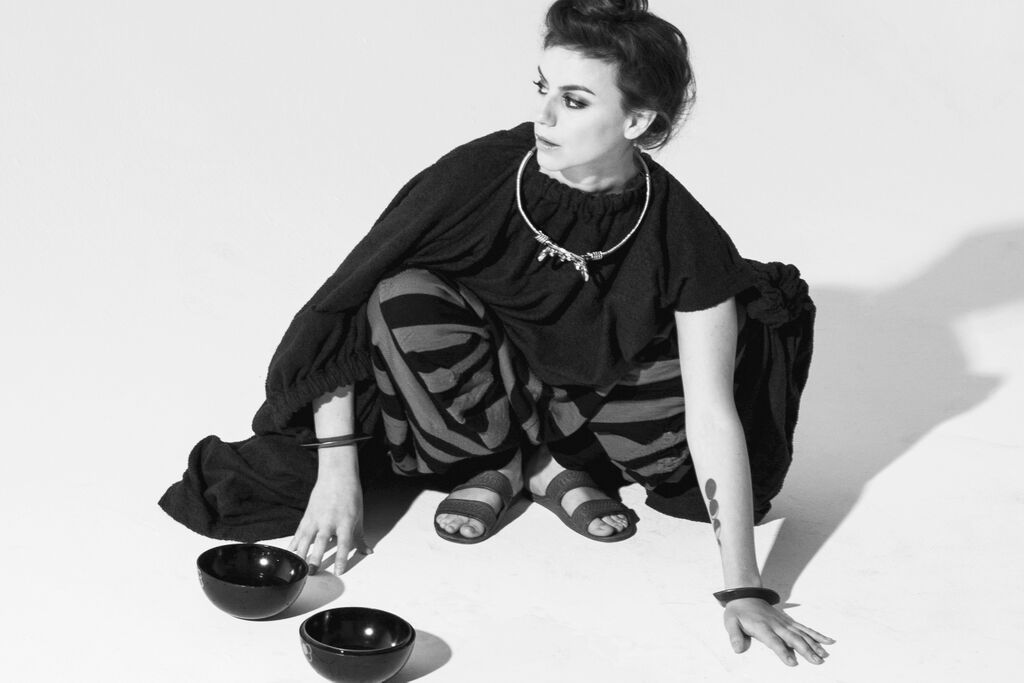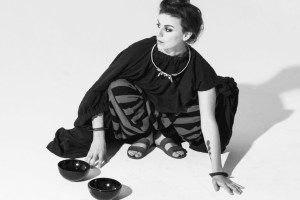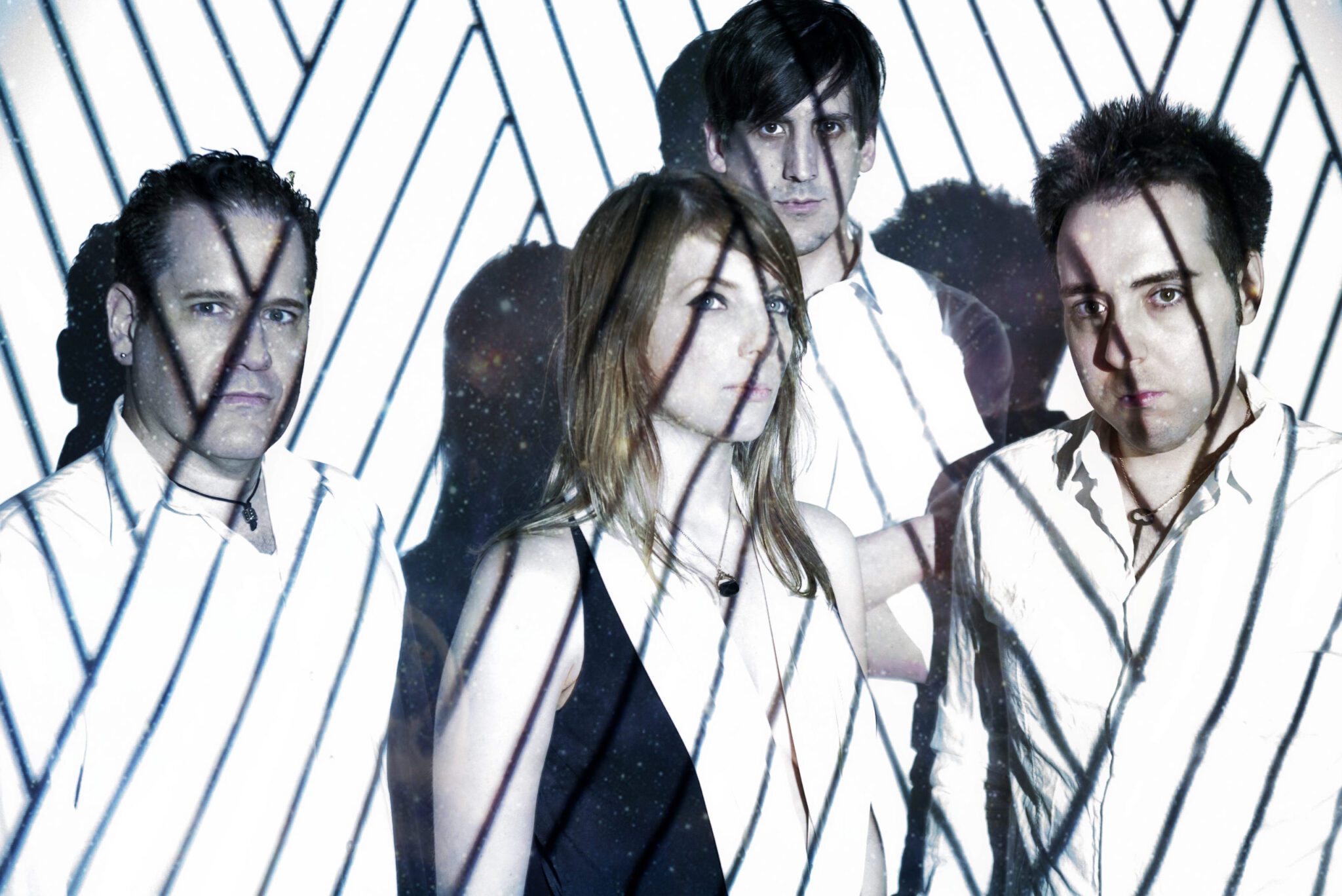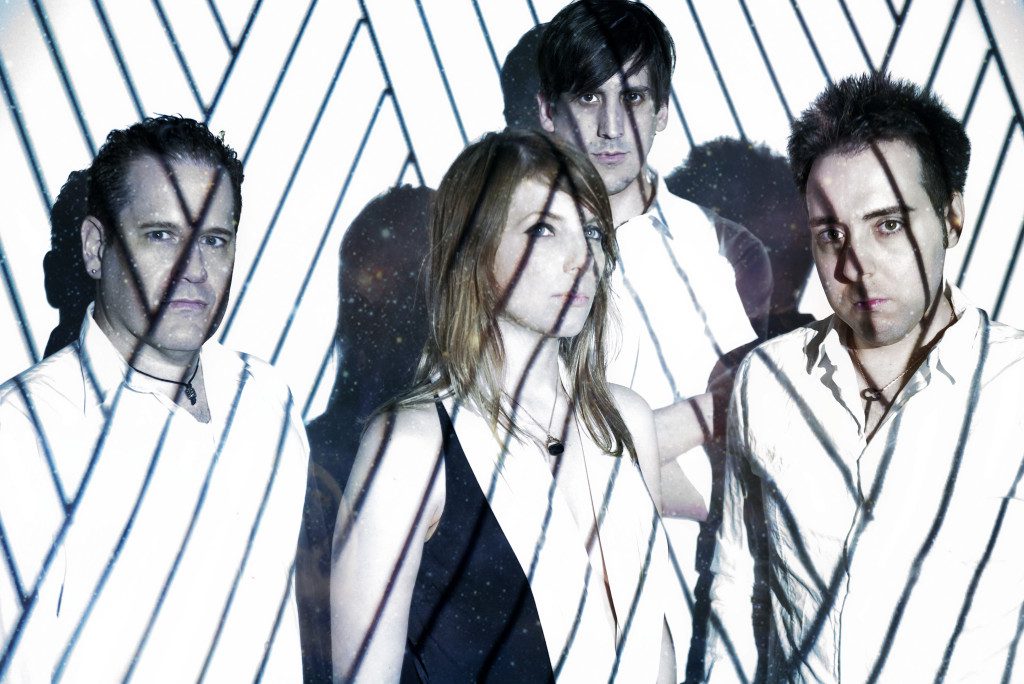BAND OF THE MONTH: Weeping Icon
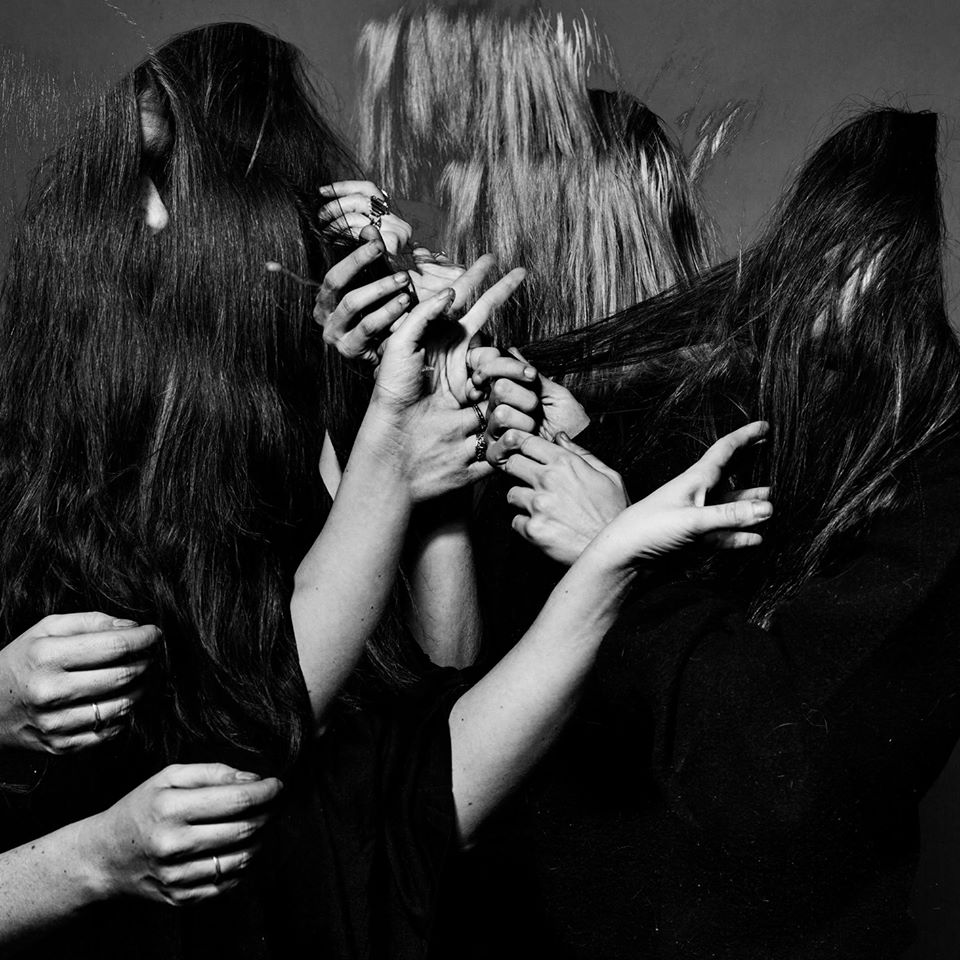
[fusion_builder_container hundred_percent=”yes” overflow=”visible”][fusion_builder_row][fusion_builder_column type=”1_1″ background_position=”left top” background_color=”” border_size=”” border_color=”” border_style=”solid” spacing=”yes” background_image=”” background_repeat=”no-repeat” padding=”” margin_top=”0px” margin_bottom=”0px” class=”” id=”” animation_type=”” animation_speed=”0.3″ animation_direction=”left” hide_on_mobile=”no” center_content=”no” min_height=”none”]

Stalwarts of NYC’s DIY scene, experimental noise punk band Weeping Icon released their debut EP Eyeball Under on Kanine/Fire Talk Records in July. Thematically, the record touches on hard-hitting topics like street harassment, religion, anxiety, sexism and secrets in “safe places” like the doctor’s office, as well as anger and frustration with current events in politics. Weeping Icon are uncompromising and display a brutal honesty that is sure to weed out those that can’t handle the truth.
While listening to Eyeball Under I can vividly recall the live shows I’ve experienced with my jaw on the floor and hair whipping around in front of my face. Sara Fantry’s searing guitar tones, Sara Lutkenhaus’s dizzying noise progressions, Sara Reinold’s driving bass lines, Lani Combier-Kapel’s kinetic drumming, and vocal deliveries that range from sultry to electrifying battle cries are key elements to the band’s sound. Luckily, the band has found a way to capture the raw energy of their live performances in these recordings.
AudioFemme had the pleasure of dissecting the collective mind of Weeping Icon. Stream their latest record while you read the interview below, where we discuss the making of the album, the growth of NYC’s music scene, and empowerment through music.
Audiofemme (AF): How did you come together? When did Weeping Icon form?
Lani Combier-Kapel (LCK): Sara Fantry and I played in ADVAETA for 7 years together and towards the end would jam alone on harder, noisier riffs. When that project disbanded in fall 2015, we started jamming more and decided to start another project. Two more Saras later and voila!
AF: What is the significance of the band name? What does it mean to you?
LCK: If you look up weeping icon in google image search, you’ll find all of these Christian paintings with water damage coming out of their eyes and it looks like they’re crying. A lot of them are of the Virgin Mary and some of them supposedly have a funny smell. I’ll leave the rest to interpretation, but it’s a real crazy image to work with.
Sara Fantry (SF): I’ve always been fascinated by idol worship, and the hugely physical reactions people have to their own religious truths. No level of contesting information seems to sober fanatics. Weeping icons are often said to cry blood. Thousands of people show up to witness and experience them. To me, they represent the morbidity in extreme dogma.
AF: How long have you been working on Eyeball Under?
LCK: The whole thing was written and recorded in less than a year. All the songs on the EP are the first ones we had written together – actually, “Jail Billz” is the first song we wrote. It feels good to just spit it all out instead of taking an overly long time to perfect it. The album was recorded live and all instruments were recorded in one day!
[/fusion_builder_column][fusion_builder_column type=”1_1″ background_position=”left top” background_color=”” border_size=”” border_color=”” border_style=”solid” spacing=”yes” background_image=”” background_repeat=”no-repeat” padding=”” margin_top=”0px” margin_bottom=”0px” class=”” id=”” animation_type=”” animation_speed=”0.3″ animation_direction=”left” hide_on_mobile=”no” center_content=”no” min_height=”none”]

AF: Can you tell me more about the album artwork and working with Justin Frye?
Sara Lutkenhaus: (SL): We love all of Justin’s visuals so we sent him our album and let him run wild.
Sara Reinold (SR): Justin was great to work with – he came up with a few variations and we were able to pick and choose aspects that we liked in each, He was open to ideas and suggestions, allowing us to really shape the perfect cover. It was a great experience, hope we can work together again in the future!
LCK: PC Worship is a huge influence for me musically and we all love Justin’s visual work. I love what he ended up doing and it helped frame the rest of the art and photos for this release.
AF: How did you translate the wild live energy into your recordings? What was the process like? Who did you work with?
SR: We recorded pretty much in a live setting, with all of us playing together in the same room – then we overdubbed vox and some extra synth parts afterward. The connection between the four of us and how we communicate when we play live is very important to the music and our sound. If we had recorded any other way I don’t think we would have gotten a correct representation of the band.
We tracked with Jeremy Backofen at Kirton Farms in upstate New York. The studio sits on an amazing piece of land with views for miles and bonfires aplenty. We took a long weekend there and had a great time. We mixed with an old buddy of mine, Alan Labiner, who’s worked with some artists known for experimenting: Yeah Yeah Yeahs, TV on the Radio, Celebration. Alan was amazing to work with; he really understood what we were going for. He worked quickly, translating our many thoughts and ideas into exactly what we wanted. You can badly describe a weird noise to him and with a few clicks, that weird noise is a reality.
LCK: I don’t play to click tracks, sorrynotsorry. Also, Joe Plourde helped us overdub the vocals and I’m glad we did – they sound so much better than the originals did.
SF: One thing I think has become very specific to our live show is playing without pauses in between songs. We try to turn every transition into its own ambient or harsh noise experience. We wanted our album to retain that, so three of the tracks are noise transitions. Also on the tape and vinyl (out in September), the tracks flow into one another seamlessly. To continuously make sounds for a half hour without a break for thought, applause, or pulling your bra strap up after it fell down, means listening to one another, filling in gaps differently, and facing down new challenges every time. I’m excited to see how this idea manifests on our next album!
AF: What gear do you use to create noise elements?
SL: I record a lot of different sounds onto my sampler at home. There are 2-3 synths I mostly use and then I contact mic pretty much whatever I can find.
LCK: I’m still figuring out my drum machine. It’s broken and half the pads don’t work on it but I guess I don’t use many sounds anyway. On “Jail Billz,” I overdubbed some metal drum sounds using Lutkie’s gear! She’s a noise goddess.
SF: I use some weirdo pedal sounds, plus I try to incorporate non-traditional noise making items to play my guitar with. Those may or may not be secret things.
AF: Why is noise important to your expression? What does it represent?
SL: Noise can describe things so perfectly when words can be awkward or inadequate. It’s also sensitive to every environment, which means it’s always going to sound slightly different. It demands being present to try to respond.
SR: Noise allows us to tap into that primal energy. As the bassist, I get to express all of these pent up emotions by a gut rumbling sound. The four of us exerting this primal energy in our own different ways is at the core of the band, especially on this EP, where we see themes of anger, retaliation, fear… All this built up energy has to go somewhere, and the noise elements help us to express it beyond the constraints of the English language.
LCK: Even when you’re alone in silence, you can still hear noises – houses creaking, the A/C on, water dripping from a leaky faucet, upstairs neighbors. This is the real world we live in. Unless you’re in a controlled environment like an anechoic chamber, you’re gonna hear random shit. We’re just taking these kinds of noises and ramping them up a few notches – sort of like our environment is screaming at us.
SF: My parents would never understand my appreciation for noise. Their generation is dubious over whether rap music even qualifies as music (IT DOES). To me, noise is the next frontier. It’s what hasn’t been done and never will be finished. It’s limitless.
AF: Did writing “Jail Billz” give you more power when facing street harassment? Was there a particular encounter that broke the camel’s back and drove you to write this song? How do you deal with catcalling and harassment? When I am catcalled lately this song comes to mind. It reminds me that I don’t have to take their shit for a single second. I feel it is empowering in those moments to have this song in the back of my head and know that I am not alone and that I have the power and the right to retaliate.
LCK: Honestly, this song was written so subconsciously that I think my mind just started yelling out those words without me thinking much about the context of it. Of course, I went back and rewrote them but I remember just yelling out “I’ve got a sword!” out of nowhere, and who else would I want to kill other than shitty men? Heheheh. In all seriousness though, being catcalled and being touched without permission just plain sucks and is predatory behavior. The fact that it’s still so common is a societal flaw that keeps women afraid and weak because we feel unsafe. We need to all stand together and maybe create our own Mafia.
SF: You know, I do think this song & Lani’s lyrics have empowered me more. Lately, I walk down the street feeling tougher, fiercer, the words “I’m not afraid to slit your throat” running through me like a mantra. None of us condone violence of course, but it’s interesting how we teach the subordinate half of our species to be non-violent, and the dominant half that violence is sometimes justifiable. If (certain) men were afraid of us the way they are often afraid of each other, they would think twice about bullying us with their desires, words, and touch. I want to feel ready with that violence, not to abuse, but to keep myself and other women or bullied people protected. And thanks for saying that — we aren’t alone, and it’s important to remember that.
AF: What have you learned from your previous projects that drive Weeping Icon?
SR: What I have learned from being in so many bands over the years is you really have to take the time to learn about each member’s personalities and how they will react to things if you want to be in a healthy collaborative relationship. It’s important to know how to share ideas and opinions without stepping on anyone’s toes, and how to take criticism without getting angry about it. I’ve been in many different kinds of band formations, all who had very different writing processes and different ways to be collaborative. Maybe one person writes all the parts and brings it to the band, maybe they write just the main chords and let everyone write their own parts, or maybe everyone writes songs separately… It’s important to be open to the many possibilities. What I LOVE about Weeping Icon is we all actually sit down and write the songs together, collectively, in the same room at the same time. I love this approach as everyone has a say and we can be honest with our opinions. Being in other bands has helped me appreciate this approach so much more.
LCK: Collaboration is great but you’re never gonna see eye to eye with everyone on everything. So in my experience, it’s important to just give someone what they want every once in awhile, especially if it’s not something you super care about. I like to sit on a scenario for a moment and think, “how much do I REALLY care about getting my way on this?” Most of the time, I don’t actually mind all that much! Not reacting in the moment is hard but ideal.
However I always keep in mind: someone who likes getting their way will try and come to a compromise – but they are still getting their way! Letting other people take control is and should be okay as long as it’s not taken advantage of. This the most important lesson and is something I now take into account every time I work in a group.
Also, being able to try all ideas without question and letting go of ideas is a big one. Let go of that ego. Your idea is NOT always the best one! Use that idea for something else!
AF: Do you feel empowered by the NYC/Brooklyn DIY scene? How has it changed over the years? How do you give back to the community?
LCK: I’m a big optimist when it comes to the NYC music scene – it really has the capacity to grow musicians in a way that’s toughening because there’s just so much out there. You really have to be part of a community or be proactive to play shows. So that’s what I did – I immersed myself with as much underground music and communities as I could handle by going to shows and eventually working shows.
All of us in Weeping Icon are regular flies on the walls at local shows. Sometimes we won’t say yes to playing a show simply because we want to see another one that same night. We’ll be the ones at the apartment noise show and there’s like five other people. My partner sometimes says, “you’re always out!” and I’ll answer “no way, I hardly went out this week! I just went to four shows and had two band practices.”
I’ve been on the Programming Team at Silent Barn for four years now and I listen to so much random music submissions every single day because of it. Now, when I hear something unique, my ears immediately perk up and I know it’s something I should take a closer listen to. Music that I play is affected since I kinda know exactly what I’m into when I’m practicing or writing songs. I guess the more you immerse yourself in something, the more developed your taste gets.
AF: What are some local bands you are inspired by?
SL: Oh man, Signal Break, Dawn of Humans, L.O.T.I.O.N., Palberta, and Macula Dog. But I think we all got schooled by Martin Rev when he played in June. He is so good.
SR: Bambara, Ritual Humor, Yvette, also, Russell Hymowitz is my bass idol. He’s an inspiration.
SF: So much stuff! I’m sure to leave out so many: Parlor Walls, Pill, Heaven’s Gate, PC Worship, Smhoak Mosheein, Gold Dime, Conduit, Uniform, Dead Tenants, Squad Car, Shimmer, HVAC, so much more…ALL THE WOMEN / QUEER + NON-GENDER BINARY PEOPLE IN THE SCENE PLAYING BALLS OUT TITS TO THE SKY.
LCK: PC Worship (have to second this), Moor Mother, Boy Harsher, Heaven’s Gate, The Dreebs, Deli Girls, Beech Creeps, Lutkie.
AF: Do you have plans to tour?
SF: Oh ya, it’s happenin’ soon!
LCK: You have a hookup in St. Louis?
Weeping Icon’s Eyeball Under is available for purchase on cassette and digital formats now via their Bandcamp. Keep your eyes peeled for the vinyl release September 22; follow Weeping Icon on Facebook to keep up with live shows and upcoming releases. [/fusion_builder_column][/fusion_builder_row][/fusion_builder_container]

